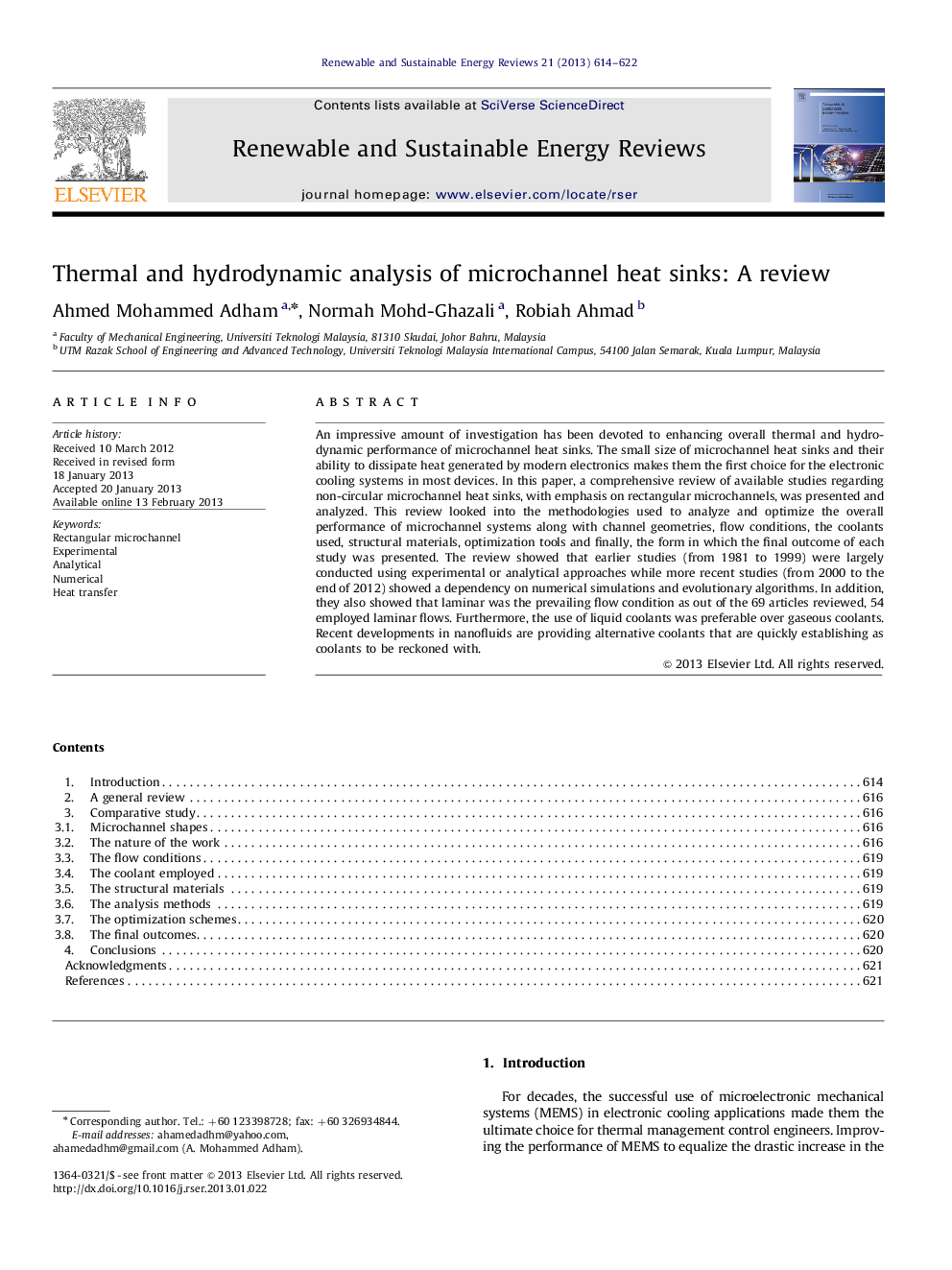| Article ID | Journal | Published Year | Pages | File Type |
|---|---|---|---|---|
| 1750178 | Renewable and Sustainable Energy Reviews | 2013 | 9 Pages |
An impressive amount of investigation has been devoted to enhancing overall thermal and hydrodynamic performance of microchannel heat sinks. The small size of microchannel heat sinks and their ability to dissipate heat generated by modern electronics makes them the first choice for the electronic cooling systems in most devices. In this paper, a comprehensive review of available studies regarding non-circular microchannel heat sinks, with emphasis on rectangular microchannels, was presented and analyzed. This review looked into the methodologies used to analyze and optimize the overall performance of microchannel systems along with channel geometries, flow conditions, the coolants used, structural materials, optimization tools and finally, the form in which the final outcome of each study was presented. The review showed that earlier studies (from 1981 to 1999) were largely conducted using experimental or analytical approaches while more recent studies (from 2000 to the end of 2012) showed a dependency on numerical simulations and evolutionary algorithms. In addition, they also showed that laminar was the prevailing flow condition as out of the 69 articles reviewed, 54 employed laminar flows. Furthermore, the use of liquid coolants was preferable over gaseous coolants. Recent developments in nanofluids are providing alternative coolants that are quickly establishing as coolants to be reckoned with.
